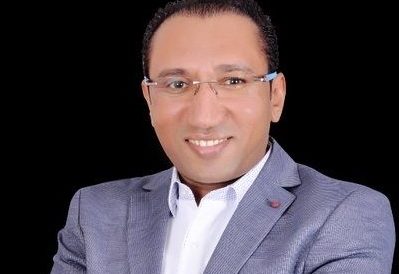Rights groups rank Egypt as one of the world’s biggest jailers of journalists.
Egypt authorities renewed the detention of Al Jazeera journalist Rabie El-Sheikh for 45 days on Monday, a decision slammed by the Qatar-based network as an attack on press freedom.
“Al Jazeera views the detention of the journalist as an attack on press freedom and holds Egyptian authorities accountable for the safety and security of El-Sheikh and all other journalists detained and imprisoned for merely carrying out their duties as journalists,” said the media network.

The news organisation also condemned Cairo for its continuous imprisonment of El-Sheikh without charge despite his health continuing to deteriorate.
The periodic renewal of prisoners in Egypt is a tactic often used by the regime every 15-to-45 days.
“[The] continuous extension of his detention throughout the year in solitary confinement at the notorious Tora Prison has severely impacted and resulted in deterioration of his physical and mental health,” added the statement.
The journalist was detained on 1 August after landing at Cairo International Airport to kickstart a family holiday in his native homeland.
Reports said he was arrested after being subjected to a lengthy investigation that dived into the nature of his work for Al-Jazeera Mubasher. His Facebook page has been deleted since his arrest.
His arrest came after security services leaked an audio clip of Al-Sheikh as he was asking Al-Ahram’s former editor-in-chief, Abdel Nasser Salama to appear on Al Jazeera to talk about the Grand Ethiopian Renaissance Dam (GERD) crisis.
Al-Sheikh also reportedly wanted to interview Salama for an article he wrote in which he demanded that President Abdel Fattah El-Sisi resign for apparent negligence towards the islands of Tiran and Sanafir by signing the Declaration of Principles in 2015.
Salama himself was arrested from his home in Egypt last year and was charged with spreading false news and funding and joining a terrorist group, a bogus charge often given to journalists by Egyptian authorities.
There are three other Al Jazeera journalists behind bars in Cairo, including Hisham Abdel Aziz, Bahauddin Ibrahim, and Ahmed al-Najdi. Like El-Sheikh, all of them are being held without a charge, based on similar accusations linked to allegedly “spreading false information”.
“The network calls on all international press freedom and human rights organisations to condemn their arbitrary arrest and demand their immediate release,” said Al Jazeera.
In June, Reporters Without Borders said the four journalists’ “the real crime” was working for Al Jazeera Media Network, which has continued to face crackdowns by Egyptian authorities.
During the same month, an Egyptian court sentenced Doha-based Al Jazeera presenter Ahmed Taha to 15 years in prison in absentia.
Taha was also sentenced over claims of “spreading false news” during an interview with Abdul Moneim Aboul Fotouh, a leading opposition figure and former presidential candidate in 2018.
Post Al-Ula
The Sisi government has continued to arrest and extend detainments of Al Jazeera journalists despite the restoration of ties between Qatar and Egypt.
During the 2017 GCC crisis, Egypt, Saudi Arabia, the UAE and Bahrain severed ties with Qatar, imposing an illegal air, land and sea blockade on the country. Ties began warming after the signing of the Al-Ula Declaration last year, under which the embargo was lifted.
At the time, El-Sheikh’s arrest came days after Al Jazeera aired live from Cairo for the first time in eight years. It was previously shut down in 2013 during a raid that saw the arrest of several other journalists.
The late Al Jazeera journalist Shireen Abu Akleh reported live from Egypt at the time.
The Sisi regime came to power following a military coup against the late Mohamed Morsi, the country’s first ever democratically elected president.
The Egyptian president has since carried crackdowns on activists and journalists, placing Cairo on the map of the world’s most dangerous places for the press.
According to Reporters Without Borders (RSF), Egypt is one of the world’s biggest jailers of journalists, with many spending years in jail and solitary confinement without being formally charged or tried.
RSF says that more than 500 websites have been blocked since the summer of 2017, including news outlets. According to data from RSF, Egypt ranked 166th out of 180 countries in the 2021 World Press Freedom Index.
In June, Qatar’s Amir Sheikh Tamim bin Hamad Al Thani travelled to Egypt and met with El Sisi, marking the first such visit since the 2017 blockade. It remains unclear whether the imprisonment of Al Jazeera journalists was mentioned during the meeting.







